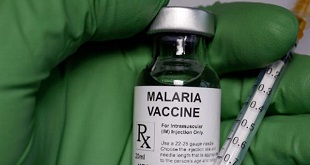
Not about profits and interests of multinational companies
COMMENT | MICHAEL J SSALI | The recent article in The Independent magazine (October 31 2017) titled “Tears and Cheers over New GMO Law” left me, as a farmer and a science journalist, disappointed. It carried negative and misleading sentiments about agricultural biotechnology.
Uganda’s decision to adapt Agricultural GMO technology and the passing of the Bill are aimed at overcoming Uganda’s current agricultural production difficulties and not promoting the interests of any foreign companies or countries as was insinuated by some of the people quoted in the article.
The article was also totally insensitive to the big problems we are facing; food insecurity, malnutrition, especially among children and pregnant women, and the loss of household income among farmers resulting from pests, crop diseases, and extreme weather conditions caused by climate change. We surely do not want to miss the very technology that has banished food insecurity and poverty in other countries such as India, Sudan, South Africa, Burkina Faso and many others across the world.
We cannot talk about exporting food overseas when our own food supplies as a nation are shrinking due to crop diseases that have no chemical cure. Before we export food we ought to have enough of it ourselves to feed our rapidly growing population and to combat malnutrition which causes Uganda an annual loss of $899 million according to ‘The Cost of Hunger Report 2013’ not to mention millions of working hours lost every year due to people falling sick or abandoning work to attend burials of people killed by malnutrition-related illnesses.
The article reminded me of an old Byzantine saying: “He who has food has many problems but he who has no food has only one problem.” Simply put, its message is that when there is enough food in the house you can worry about such issues as children’s school fees, repairing your car or buying a new dress for your wife. However, when there is no food at all you have only one problem to worry about – death. Uganda should not be worrying about losing its anti-GMO food customers overseas when its own citizens are chronically poor and facing starvation due to a fast growing population.
Every Ugandan woman on the average produces 5.6 children and our population growth rate is the highest in the world after Mayotte and Niger, according to the Washington based Population Reference Bureau (www.prb.org). The big population increase is set to dramatically raise the demand for food supplies. Yet our food crops are facing extinction and there are no known ways of effectively dealing with the new pests and diseases other than the use of biotechnology (Dr. Wilberforce Tushemeirwe, Daily Monitor October 9 2015). We cannot go on practicing agriculture in the same way we have always done because of the different circumstances in which we work at present. The main reason food prices keep raising is due to reduced agricultural production against disproportionately high demand for food exacerbated by the rapidly growing population.
Seven out of every ten farmers in Uganda grow bananas and we are the leading banana producing country in Africa. However our production of the crop is declining at the rate of seven out of ten expected bunches due to the Banana Bacterial Wilt Disease (BBWD) according to the Uganda Biotechnology Information Centre (UBIC). The total Ugandan farmers’ annual loss is estimated to be $299.6 million. Dr Jerome Kubiriba, head of the Banana Research Project under NARO (National Agricultural Research Organisation) has revealed that Uganda’s annual $550 million worth production of bananas has reduced to $350 million due to BBWD.
Researchers at Kawanda Agricultural Research Institute (NARO) have used biotechnology/GM to develop more nutritious bananas that are rich in Vitamin A and which are also resistant to the BBWD. These are the banana varieties that we hope to be passed on to the farmers to grow following the recent passing of the Biotechnology and Bio-safety Bill.
It is hoped that when the farmers grow BBWD resistant bananas there will be a rise in production of the crop and a reduction in malnutrition levels. Six out of ten farmers interviewed are willing to grow GM banana varieties resistant to the deadly BBWD.
One out of every four Ugandans consumes cassava as a main food and at least seven in every ten farmers in the country grow cassava, according to UBIC. Ugandan farmers produce an average of 6.7million tones annually compared to the possible 30million if we did not have the Cassava Brown Streak Disease (CBSD), a viral disease, which causes an annual loss of $24.2 million and is present in 51 out of the 54 districts surveyed in 2014 according to (UBIC). By the use of GM research scientists at Namulonge Agricultural Research Institute have come up with cassava that is resistant to the CBSD which is to be passed on to farmers to plant following the recent passing of the Biotechnology and Bio-safety Bill by parliament.
 The Independent Uganda: You get the Truth we Pay the Price
The Independent Uganda: You get the Truth we Pay the Price



What an awesome story! And so brave of you both taking off into the unknown. I love it! It seems like you all have really hustled to be in the situation that you’re in today and that’s awesome